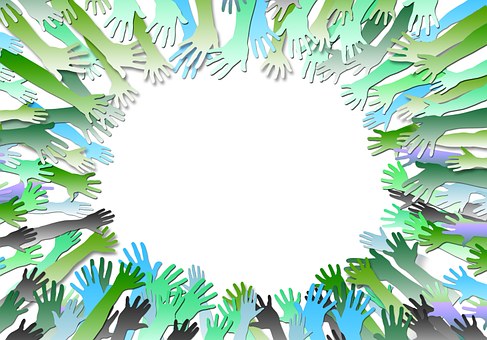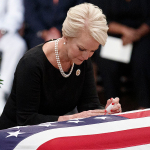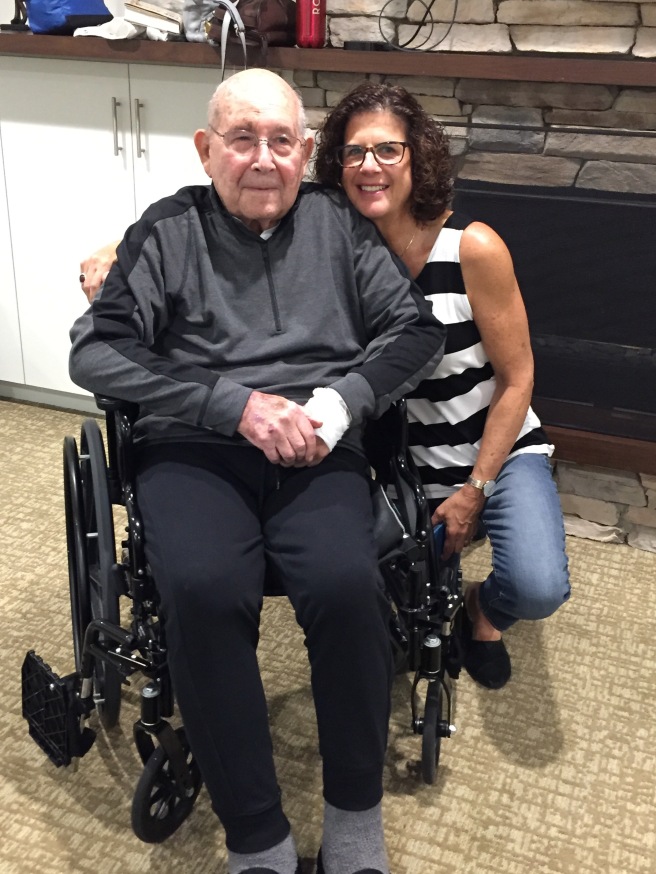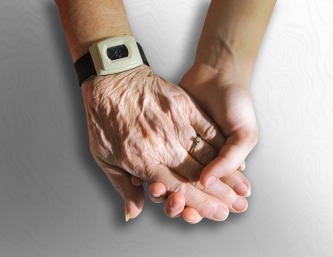
This is a marathon, not a sprint.
The average length of time that a caregiver takes care of a loved one is 7-8 years. Most caregivers go into this experience thinking it will be for 2 years.
This is more like a marathon, not a sprint. I began taking care of my dad remotely about 3 years before I finally moved him out East. Most caregivers, including me, set off down the path of caregiving without much thought. Of course, I will take care of my dad. He was a wonderful father and gave so much to me and to his community. He deserves nothing but the best. Without thinking about the long-term consequences of that decision, I moved him out East to be closer to me…and assumably to be closer to his two sons and his niece and nephew who are up in the Boston area. Surely being closer to all of us would be a good thing. He would get to see them more often because they aren’t as far away.
I knew that I would be doing the lion’s share of overseeing his care because I am the only one local, but I also assumed that my siblings would pitch in and help with this monumental job of taking care of our father. One of my brothers set up a secret facebook group which allows me to privately post status updates on how dad is doing, to post videos of him, keeping all of them in the loop on how dad is doing. I regularly update it and it is a better way of communicating with so many interested parties than to be bombarded with phone calls wondering how he is doing.
HOWEVER
I believe this facebook group has enabled my two siblings to become complacent. They see how well dad is doing and are able to keep up to date on his progress remotely. It is further exacerbated by the fact that dad really cannot communicate on the phone anymore so they cannot call him to keep that connection alive. They really need to visit him in person. And to really see how he is doing, they need to visit for a few days, not a few hours a couple of times a year. Every day can be different with the Dementia experience. On one day dad could be pretty verbal for a short time and then be unable to communicate the rest of the day. If you pop in for a few hours, you may catch him on a good day. This is wonderful, but it doesn’t give you a true sense of the magnitude of the job of caregiving day in and day out.
SO WHERE DOES THIS LEAVE US?
If you are not the direct caregiver because you live out of town, that does NOT let you off the hook of providing care for your loved one. What it means is you have to help in other ways. You should be calling the direct caregiver regularly and asking them how you can help. You should be doing things like sending notes thanking them for taking care of dad and telling them how much you appreciate it. You can be sending short notes to your father letting him know that you are thinking of him (since he cannot speak on the phone).
You have no idea how much of a sacrifice this is for the direct caregiver and their family. Unable to work, the family sacrifices current income and is not able to contribute to their own future retirement. Vacations become difficult to manage because you are your loved one’s voice and their advocate.
A large percentage of caregivers do not survive the person they are caring for. This is a highly stressful experience, both physically and emotionally.
I have it much better than someone who is caring for their loved one in their home because my dad is in an assisted living facility. However, that facility is taking care of just his basic needs. To care for him as he deserves, there is much more to be done. I am there 6-7 days a week normally. I spend hours with him. Most of the time he cannot communicate, so I am his advocate. I make him feel connected and feel like he is communicating (even though he does not make any sense) by doing improv with him (Oh really? Tell me more!).
I walk him and do stretching exercises with him. These are just the basics. Then there are all of the doctor appointments that can sometimes kill a half a day. Because of his mobility issues, I sometimes have to enlist my husband to help get him to the appointments, so now two of us have killed half a day.
This is what caregiving involves:
- Medicare advocacy
- Doing his laundry
- Managing the inventory of his medications
- Taking him to doctor’s appointments
- A daily commute (sometimes more than once a day)
- Trips to the VA in Philly
- Trips to the VA in Coatesville
- Fixing his wheelchair
- Managing his hearing aids and batteries
- Management of incontinence supplies
- Healthcare advocate (acting as the liaison between about six doctors, none of whom communicate with each other as that is how our healthcare system is set up)
- Parkinson’s expert (staying up to date, participating in webinars on the disease)
- Paying his bills
- Shopping for him (new clothes as his trousers frequently rip from people grabbing his waistband to hoist him to a standing position)
- Constantly thinking about new ways to stimulate him mentally
- Researching and finding specialized therapy, and being at every single therapy appointment (because he cannot communicate for himself and he tends to participate better if I am there)
- Researching and locating a geriatric massage therapist and being at each massage to facilitate
- Monitoring how he feels since he cannot easily tell the staff when something is bothering him, but I can tell
- Figuring out the logistics of transporting a body interstate and pre-paying for his future funeral…and there is probably more that I am not thinking about.
I UNDERSTAND THAT YOU HAVE BUSINESSES AND JOBS. I GET IT. BUT YOU ALSO HAVE A FATHER.
You are missing out not only on the opportunity of spending time with him, and the rewards that come from knowing that you helped to take care of your dad after all that he gave to you. And you are also fracturing your future relationship with your sibling, the one who has shouldered most of his care.
I want to be clear, one of my brothers has been generous and recently took me to see my favorite artist perform when she was in town and sent me a gift card for a massage about a year ago. My cousins have each visited a couple of times. My step brother and sister-in-law have visited a couple of times for short visits. For that I am grateful.
What I need is more than that.
Let me be brutally honest. I need a week off. I need a few days off now and again. Not once a year, but periodically. I need my siblings to step it up and participate in the care of our father. Last night, I attended a session on caregiving sponsored by the facility where my dad lives. The examples they gave talked about how one sibling did the majority of caregiving because they were local but the others alternated visiting every few weeks to a month to give that primary caregiver a break. A break. What a novel concept.
I appreciate the fact that they came to dad’s recent 90th birthday celebration, but again, they came for 2 1/2 hours and then left to go home. That is not helping in the caregiving.
This takes more than a village. It is more than a full-time job. I want my village to wake up to the reality of what is at stake. This crisis in our family can either make our sibling relationship enriched and stronger or it can tear it apart.



 How Lucky Senator McCain Was
How Lucky Senator McCain Was


 Ahh…The Maze of Medicare
Ahh…The Maze of Medicare
 I couldn’t resist putting this FANTASTIC photo of my dad and me and in this post. When the going gets tough…and with a progressive neurological disease, it gets tougher each day, I try to remember the good days. This was one of those.
I couldn’t resist putting this FANTASTIC photo of my dad and me and in this post. When the going gets tough…and with a progressive neurological disease, it gets tougher each day, I try to remember the good days. This was one of those. This is, hands down, the most physically and mentally draining task I have ever tackled. Taking care of my father, a 188 lb guy who is practically immobile and mostly cognitively gone is difficult for anyone. When you are doing it single-handedly without any additional help, it can seem overwhelming at times. It becomes a test of who has the most stamina – my dad or me.
This is, hands down, the most physically and mentally draining task I have ever tackled. Taking care of my father, a 188 lb guy who is practically immobile and mostly cognitively gone is difficult for anyone. When you are doing it single-handedly without any additional help, it can seem overwhelming at times. It becomes a test of who has the most stamina – my dad or me.
